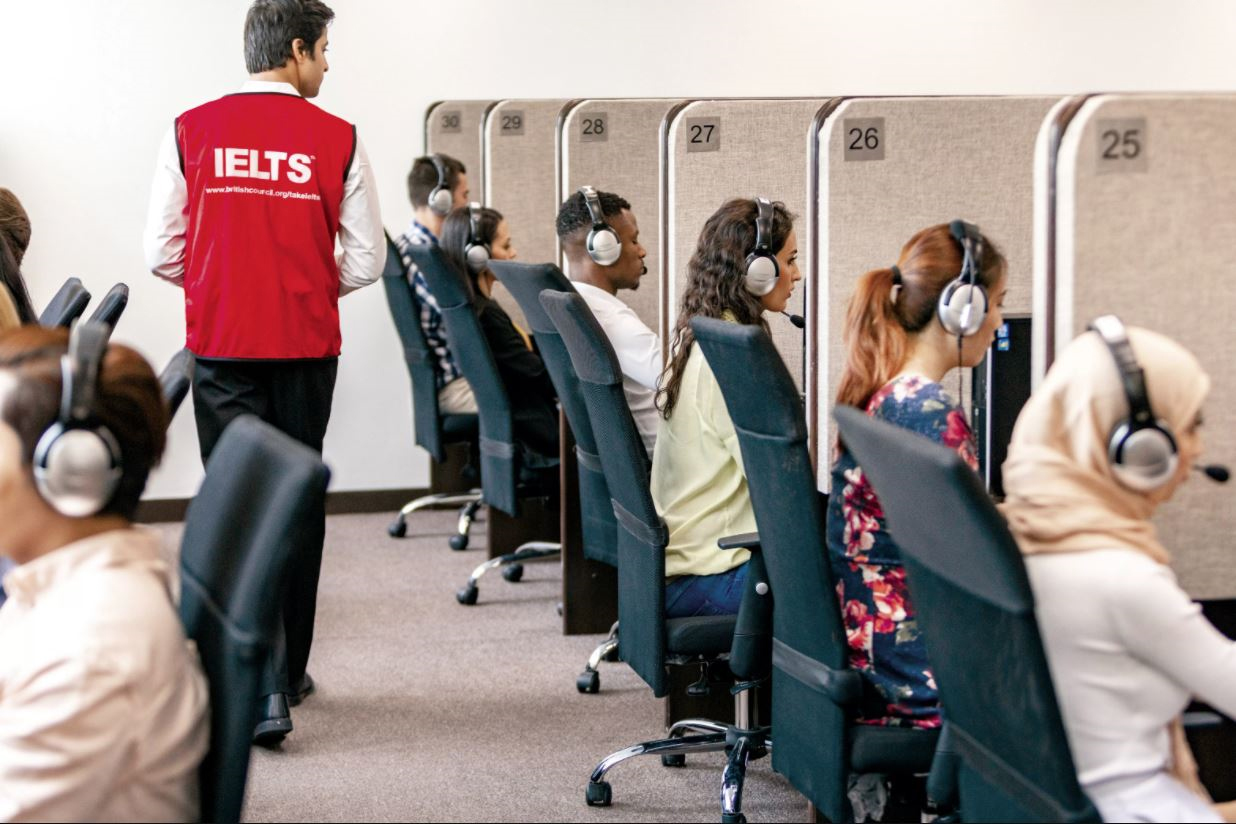The International English Language Testing System (IELTS) is one of the most popular and widely accepted tests of English proficiency in the world. It is designed to assess the language skills of people who want to study, work, or migrate to countries where English is the main language of communication.
But did you know that there are different types of IELTS exams, each with its own format, content, and purpose? In this article, we will explain the differences and similarities between the four types of IELTS exams: Academic, General Training, Life Skills, and UKVI. We will also give you some tips on how to prepare for each one and achieve your desired score.

IELTS Academic
The IELTS Academic exam is intended for people who want to pursue higher education or professional registration in an English-speaking environment. It tests your ability to understand and use academic language in a variety of contexts, such as lectures, articles, graphs, and diagrams.
The IELTS Academic exam consists of four sections: Listening, Reading, Writing, and Speaking. The Listening and Speaking sections are the same for all types of IELTS exams, but the Reading and Writing sections are different for the Academic and General Training exams.
The Listening section lasts for 30 minutes and has 40 questions. You will listen to four recordings of native English speakers and answer questions based on what you hear. The recordings include a conversation between two people, a monologue set in an everyday social context, a conversation among up to four people set in an educational or training context, and a monologue on an academic subject.
The Reading section lasts for 60 minutes and has 40 questions. You will read three long texts taken from books, journals, magazines, or newspapers and answer questions based on what you read. The texts are selected for a non-specialist audience but are appropriate for people entering university or seeking professional registration.
The Writing section lasts for 60 minutes and has two tasks. You will write a short essay of at least 250 words in response to a point of view, argument, or problem. You will also write a summary of at least 150 words based on a graph, table, chart, or diagram.
The Speaking section lasts for 11 to 14 minutes and has three parts. You will have a face-to-face interview with an examiner who will ask you questions about yourself, your interests, and your opinions. You will also speak for one to two minutes on a given topic and answer questions related to it. You will also have a discussion with the examiner on more abstract issues and ideas related to the topic.
IELTS General Training
The IELTS General Training exam is intended for people who want to work, study, or live in an English-speaking country. It tests your ability to communicate in everyday situations, such as shopping, travelling, working, or studying.
The IELTS General Training exam also consists of four sections: Listening, Reading, Writing, and Speaking. The Listening and Speaking sections are the same as the IELTS Academic exam, but the Reading and Writing sections are different.
The Reading section lasts for 60 minutes and has 40 questions. You will read three sections of texts taken from notices, advertisements, newspapers, magazines, books, or other sources. The texts are related to everyday life in an English-speaking country and are written for a general audience.
The Writing section lasts for 60 minutes and has two tasks. You will write a letter of at least 150 words in response to a given situation, such as requesting information, giving advice, or making a complaint. You will also write a short essay of at least 250 words in response to a point of view, argument, or problem.
IELTS Life Skills
The IELTS Life Skills exam is intended for people who need to prove their English speaking and listening skills at a basic level for immigration or citizenship purposes. It tests your ability to communicate effectively in common scenarios, such as meeting new people, making plans, or expressing opinions.
The IELTS Life Skills exam has two levels: A1 and B1. The A1 level is for people who need to apply for a UK visa to join a partner or parent who is already living in the UK. The B1 level is for people who need to apply for indefinite leave to remain or citizenship in the UK.
The IELTS Life Skills exam consists of only one section: Speaking and Listening. The exam lasts for 16 to 18 minutes for the A1 level and 22 minutes for the B1 level. You will take the exam with another candidate and an examiner who will guide the conversation and ask questions. You will be assessed on your ability to listen and respond, obtain information, convey information, speak to communicate, and engage in discussion.
IELTS UKVI
The IELTS UKVI exam is intended for people who need to prove their English language proficiency for a UK visa and immigration application. It tests your ability to use English in a variety of contexts, such as education, work, or social life.
The IELTS UKVI exam has two types: Academic and General Training. The format, content, and scoring of these exams are the same as the regular IELTS Academic and General Training exams, but they are administered by a UK government-approved test centre and have additional security measures.
How to Prepare for the IELTS Exams
The best way to prepare for the IELTS exams is to practice your English skills regularly and familiarize yourself with the exam format, content, and expectations. Here are some tips on how to do that:
- Take a diagnostic test to assess your current level of English and identify your strengths and weaknesses. You can find free online tests on the official IELTS website or other reputable sources.
- Set a realistic goal for your desired score and plan your study schedule accordingly. You should aim to study for at least two to three months before taking the exam, depending on your level and availability.
- Use a variety of materials and methods to improve your listening, reading, writing, and speaking skills. You can use textbooks, online courses, podcasts, videos, articles, blogs, or other sources that suit your learning style and interests. You can also join a study group, find a language partner, or hire a tutor to get feedback and guidance.
- Practice with authentic IELTS materials and questions as much as possible. You can find official practice tests, sample answers, and tips on the IELTS website or other reliable sources. You can also take mock tests under exam conditions to simulate the real test environment and time pressure.
- Review your mistakes and learn from them. You should analyze your performance and identify the areas that need improvement. You should also seek feedback from others and learn from their suggestions and corrections.
- Stay motivated and confident. You should keep track of your progress and celebrate your achievements. You should also avoid negative thoughts and emotions that might affect your performance. You should believe in yourself and your ability to succeed.
Conclusion
The IELTS exams are a great way to demonstrate your English proficiency and achieve your personal, academic, or professional goals. By understanding the different types of IELTS exams and how to prepare for them, you can increase your chances of getting the score you need and the outcome you want.
We hope this article has given you some useful information and inspiration for your IELTS journey. If you need more help or advice, feel free to contact us or visit our website. We are here to support you and help you achieve your dreams.
Good luck and happy studying! 🙌



Social Plugin